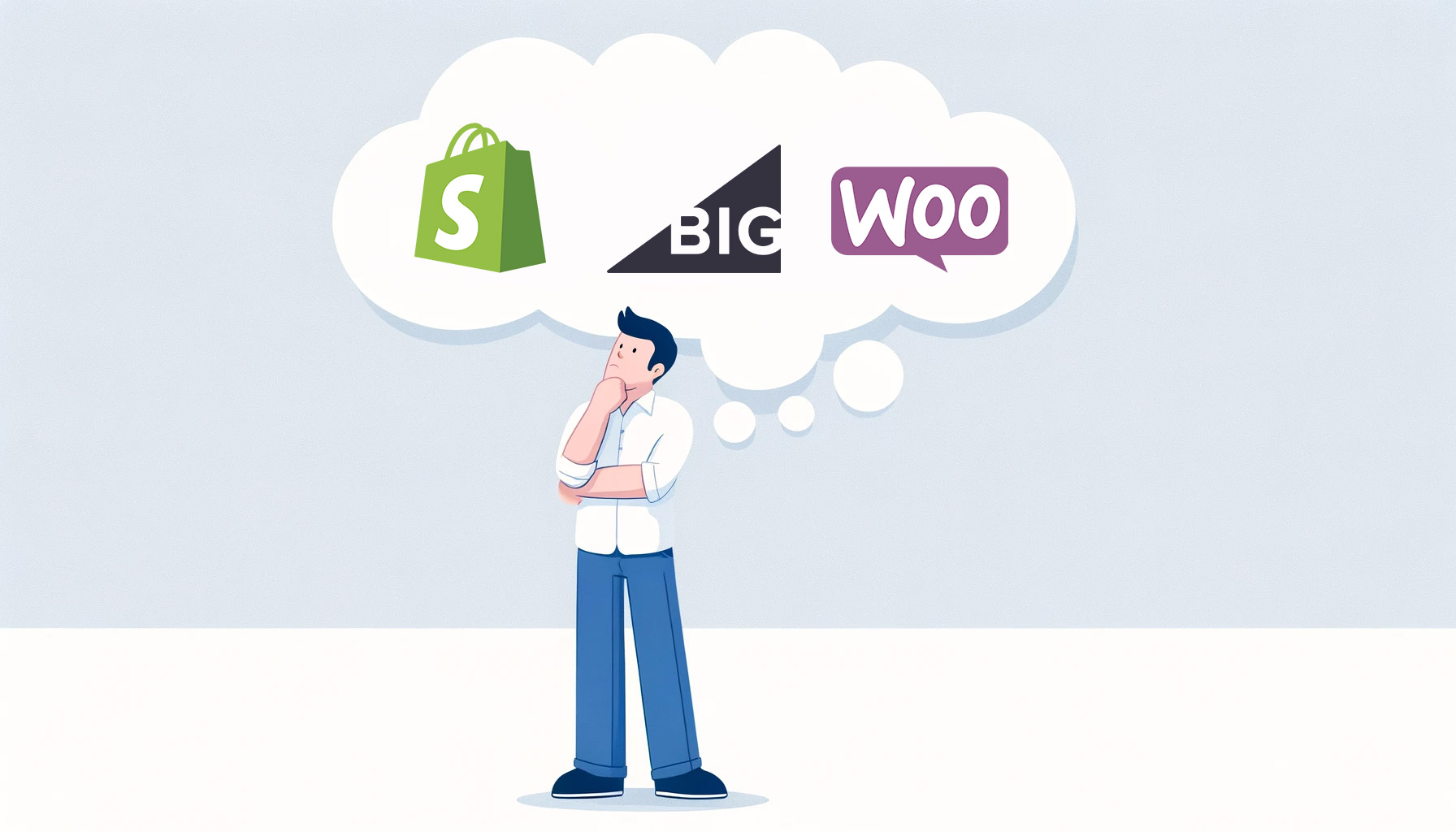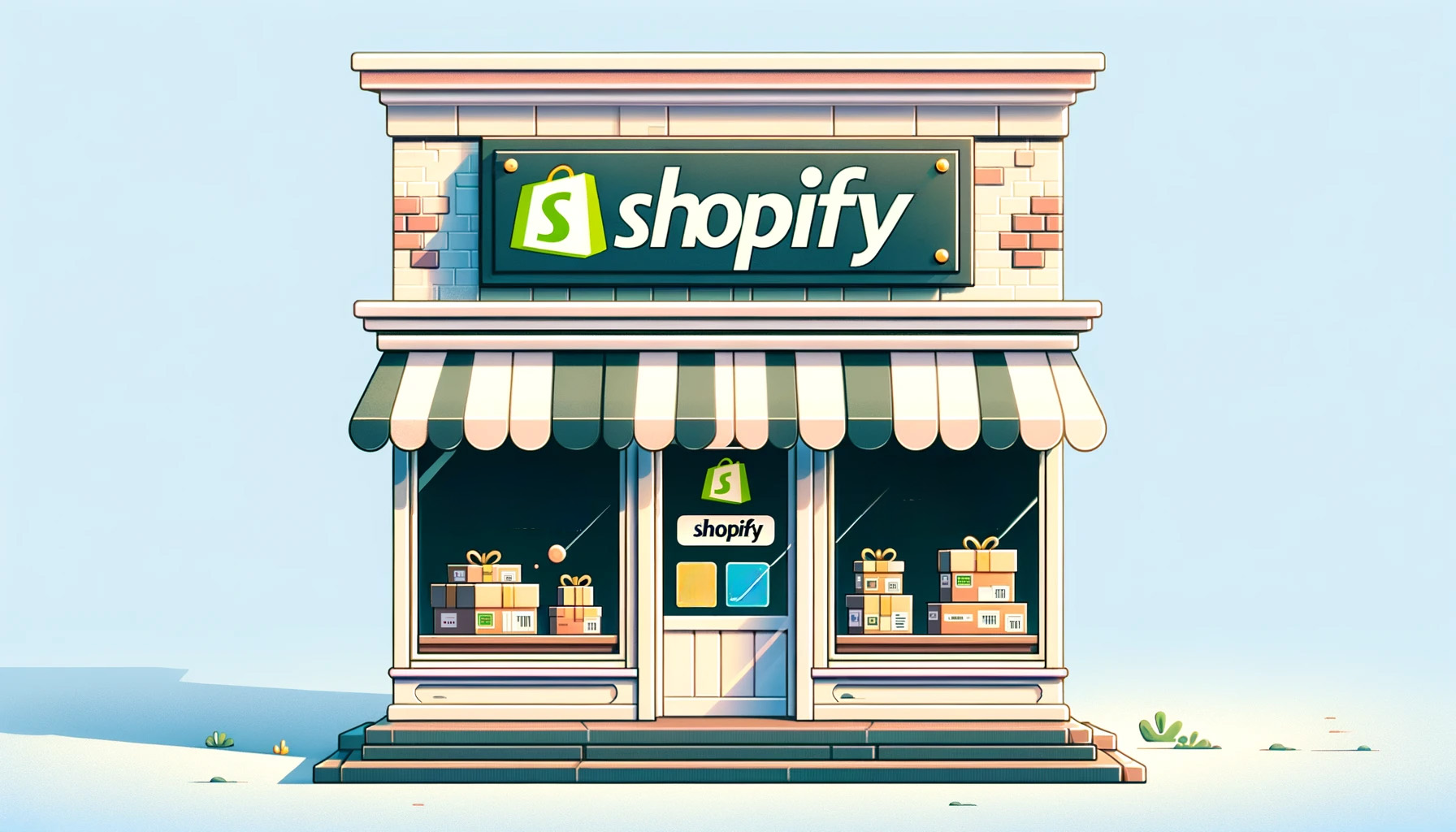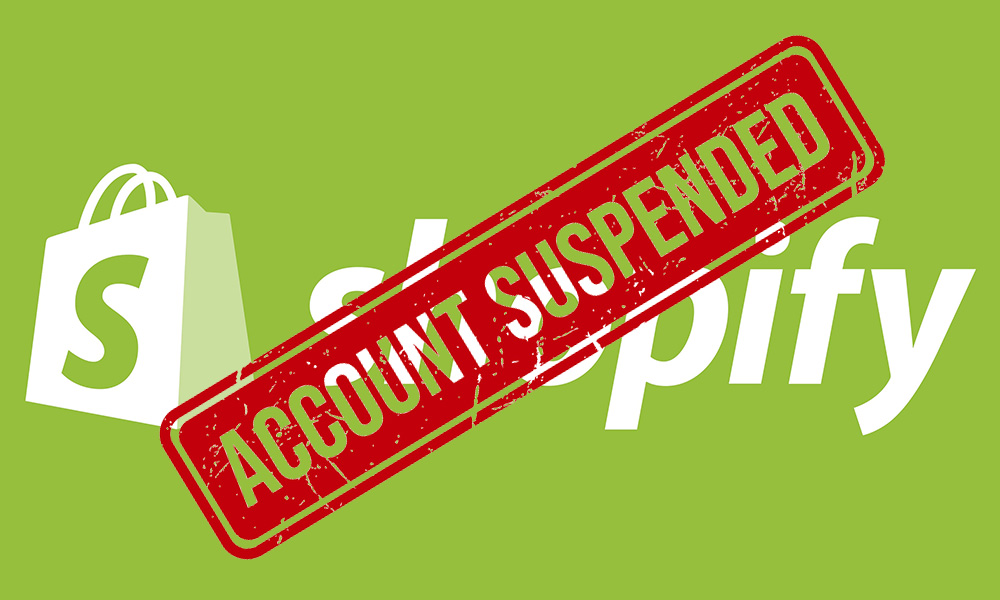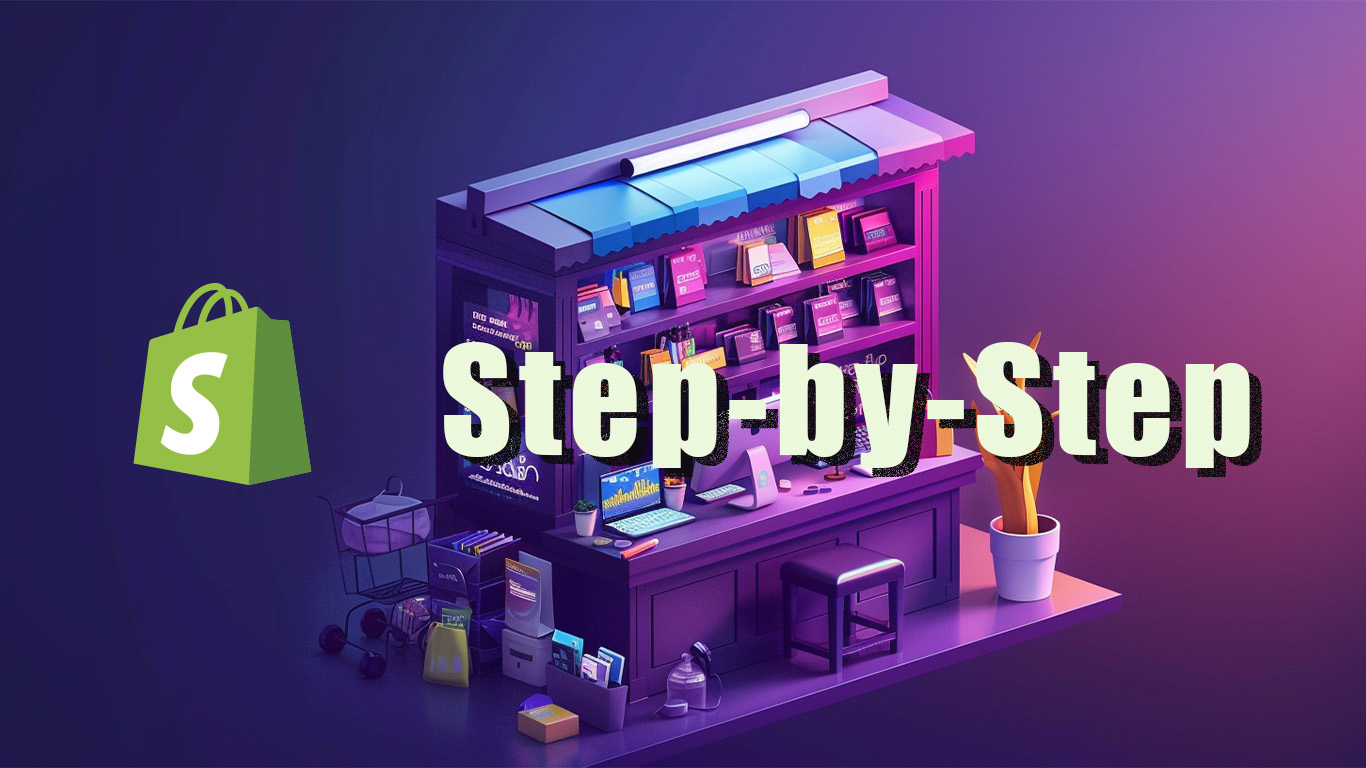
Is Shopify Worth It? Pros and Cons of Shopify
Feb 19, 2024 3 minutes
Choosing the right platform to host your online store isn’t just a decision—it’s a declaration of your business’s future. If you’re on the brink of launching your ecommerce journey or contemplating a strategic pivot for your existing online empire, you’ve likely encountered the big question: Is Shopify worth it?
Shopify, with its sleek storefronts and arsenal of sales tools, often appears as a beacon of simplicity. Yet, we need to peel back the layers and scrutinize not just Shopify but the essence of what makes an ecommerce platform the right fit for you.
Understanding Shopify’s Position in the Market
Recently, Shopify made headlines, but perhaps not for reasons you might expect. Despite surpassing revenue expectations, Shopify’s stock took a 13% tumble. What gives?
To the untrained eye, this might seem like a paradox. However, for those of us with our fingers on the pulse of the market, it’s a fascinating case study in perception versus reality.
The pandemic era was a golden age for ecommerce, catapulting valuations to unprecedented heights. Shopify, a titan in this domain, was no exception. Yet, as the dust settles, we’re left to ponder the sustainability of such valuations.
But the story doesn’t end with pandemic economics. There’s a broader conversation at play here, one that touches on the very heart of modern business operations. The allure of Shopify’s vast “feature buffet” tempts many an entrepreneur. Yet, in this abundance lies a critical question: Are these features enhancing your business, or simply adding complexity?
Centralization versus flexibility is another hot topic. Shopify offers a seemingly idyllic ecosystem, but for some businesses, the question remains whether this model is a silken trap, limiting their agility and growth potential.
As we peel back these layers, it becomes evident that Shopify’s position in the market is both a reflection of its strengths and a mirror to the evolving expectations of online businesses in a post-pandemic world. The key? Identifying not just what Shopify can do, but what it can do for your business.
Get powerful payment processing for your business, even on Shopify!

A few packages designed for specific businesses.
Shopify’s Core Offerings
At its core, Shopify simplifies the complex process of building and managing an online store. Whether you’re a budding entrepreneur sketching out your first business plan or a seasoned merchant looking to scale, Shopify’s suite of features is designed to cater to a wide spectrum of needs. Let’s unpack these offerings.
Website Creation
Shopify takes the intimidation out of web design. With a user-friendly interface and a plethora of templates, free themes, and paid themes it offers the scaffolding needed to construct a visually appealing and functional online storefront.
Sites also come with SSL certificates and simple SEO (search engine optimization) management specifically for product pages.
Inventory and Shipping Management
Beyond the aesthetics, Shopify serves as the operational backbone of your ecommerce business. Its robust inventory management system allows you to track stock levels, integrate with suppliers, and manage orders with ease. Coupled with comprehensive shipping solutions, it ensures that your products find their way to customers without a hitch.
There are even tools to help with marketing campaigns and abandoned cart recovery, including a dashboard of metrics to better understand what sells, what doesn’t, and why.
Multi-channel Selling
Shopify understands that today’s consumers shop across multiple platforms. Thus, it enables businesses to sell not only through their websites but also across social media, online marketplaces, and physical locations, providing a cohesive online shopping experience on any sales channel.
Payment Processing
At the checkout, Shopify smoothly handles transactions with Shopify Payments. It supports a wide range of payment methods (namely credit cards) and currencies, ensuring that customers can pay their way. Furthermore, it embeds security and trust at every step, making the checkout process as seamless as it is secure with a PCI-DSS payment gateway.
These core offerings represent just the tip of the iceberg. With features like advanced analytics, marketing tools, and access to the Shopify App Store for additional functionalities or Shopify themes, it positions itself as not just an ecommerce platform but a comprehensive ecommerce solution.

Push the button.
Deciding If Shopify Is Right for Your Business
Making the leap into ecommerce or scaling your current operation presents a pivotal moment in your entrepreneurial journey.
However, the decision to embrace Shopify should be informed by a deep understanding of your business needs, technical prowess, and long-term vision. Let’s like at the Shopify pros and its downsides to help decide if Shopify is worth it.
Starting Up?
For entrepreneurs at the threshold of their ecommerce adventure, Shopify offers a streamlined path to launch. Its user-friendly interface, extensive template gallery, and out-of-the-box functionality make it an attractive option for those eager to bring their vision to market quickly and efficiently.
Technical Know-how
Your comfort level with technology plays a crucial role. Shopify shines for those who prefer a hands-off approach to ecommerce website development and maintenance, thanks to its intuitive design tools and robust customer support. Yet, if custom coding and deep customization are your bread and butter, you might find Shopify’s template-driven approach somewhat restrictive.
Industry Network
The extent of your network within your industry can influence your platform choice. A vast network might benefit from a more customizable platform to leverage unique partnerships and integrations. However, Shopify’s omni-channel capabilities and App Store, filled with add-ons and plugins, can effectively bridge the gap for those still building their connections.
Sales Forecast
Anticipated sales volume and growth trajectory are critical. Shopify can scale with your business, offering plans from Basic Shopify to Advanced Shopify and even Shopify Plus that accommodate increasing complexities as your sales grow—but only so far. Evaluate your sales forecast to determine if Shopify’s pricing and features align with your expected growth.
Shopify: A One-size-fits-all Solution?
Not necessarily. While Shopify offers a robust platform for many, it’s not a universal fit. Established businesses with complex operational needs or those prioritizing full control over their ecommerce environment may seek alternatives that offer greater flexibility and customization.
Shopify isn’t for everyone, but accepting credit cards is.

Always have a backup.
The Importance of a Backup Merchant Account
In the dynamic world of ecommerce, preparedness isn’t just a strategy—it’s your lifeline. I can’t stress enough the critical importance of having a backup merchant account. Think of it as the secret weapon in your arsenal, ready to deploy should the unexpected happen.
Why a Backup?
Relying solely on a single payment processing solution, such as Shopify Payments, Stripe, or PayPal, is like walking a tightrope without a safety net. Payment disputes, processing issues, or changes in provider policies can disrupt your cash flow and, in turn, your operations. A backup merchant account offers an alternate path, ensuring that your Shopify store remains resilient in the face of such challenges.
Custom Tailoring for Your Business
Unlike one-size-fits-all solutions, a real merchant account designed specifically for your business can provide more control over your transactions, potentially lower transaction fees, and a customer service experience that understands the nuances of your industry.
Risk Management
Just as a seasoned secret agent carries more than one gadget on their missions, having a backup merchant account is about anticipating risks and being prepared to pivot. It’s not just about avoiding downtime; it’s about maintaining trust with your customers by ensuring their transactions are processed smoothly, no matter what.
Building Relationships
Establishing a merchant account requires building a relationship with a bank or financial institution. This relationship can be invaluable, offering insights, advice, and support tailored to your business’s financial health and growth.

Shopify vs Woo vs Wix vs Squarespace
Comparing Shopify to Other Ecommerce Solutions
Choosing the right contender to champion your online store is a decision that merits careful consideration. Shopify often stands in the spotlight. However, the market brims with worthy adversaries, each bringing their unique strengths to the ring. Let’s size up Shopify against its main competitors: WooCommerce, BigCommerce, Squarespace, and Wix. (We’re leaving out Amazon and eBay for this comparison)
Shopify Review
Renowned for its comprehensive set of tools and ease of use, Shopify is the go-to for many entrepreneurs looking for a quick start without the hassle of technical setup. Its integrated payment processing, extensive app marketplace, and scalable plans make it a formidable all-rounder.
WooCommerce Review
Entering the ring with the flexibility of WordPress, WooCommerce offers unparalleled customization. It’s the choice for those who demand full control over their ecommerce site’s design and functionality, leveraging the power of the world’s most popular CMS. However, this freedom comes with the need for a higher level of technical know-how.
BigCommerce Review
BigCommerce challenges Shopify with its strong focus on scalability and built-in sales features, catering to businesses poised for rapid growth. Its comprehensive set of out-of-the-box features minimizes the reliance on third-party apps but may present a steeper learning curve.
Squarespace Review
With gloves laced up for design and aesthetics, Squarespace appeals to creatives and small business owners prioritizing beautiful templates and straightforward site management. While it offers fewer ecommerce-specific features than Shopify, its user-friendly interface and design capabilities make it a strong contender for simpler ecommerce stores.
Wix Review
Wix steps into the ring with a focus on customization and ease of use, thanks to its drag-and-drop website builder. Ideal for small businesses and solopreneurs, Wix provides a balanced mix of ecommerce functionalities and design freedom, though it may lack the advanced features needed by larger, more complex operations.
In this bout for ecommerce supremacy, each platform flexes its muscles in different areas—Shopify with its all-encompassing ease of use, WooCommerce with its customization, BigCommerce with its scalability, Squarespace with its design, and Wix with its beginner-friendly approach.
No matter which you choose or what type of business you run—from dropshipping businesses to coaching and more, a merchant account and payment options that support store owners are essential for any store on any platform. Let DirectPayNet help you avoid roadblocks when it comes to payments.




